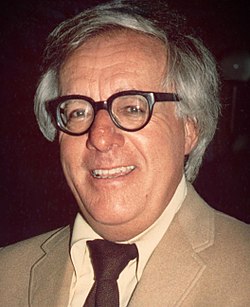Ray Bradbury Quote
Somewhere on the Earth tonight, my Tylla, there is a Man with a Lever, which, when he pulls it, Will Save The World. The man is now unemployed. His switch gathers dust. He himself plays pinochle.
Ray Bradbury
Somewhere on the Earth tonight, my Tylla, there is a Man with a Lever, which, when he pulls it, Will Save The World. The man is now unemployed. His switch gathers dust. He himself plays pinochle.
Tags:
end of the world
Related Quotes
If there's any guy crazy enough to attack me, I'm going to show him the end of the world -- close up. I'm going to let him see the kingdom come with his own eyes. I'm going to send him straight to the...
Haruki Murakami
Tags:
ashes, attack, badass, confidence, death, end of the world, girl power, kangaroos, kingdom come, self defense
[Pope] Clement waved his hands in irritation as if to dismiss the very idea. The world is crumbling into ruin. Armies are marching. Men and women are dying everywhere, in huge numbers. Fields are aban...
Iain Pears
Tags:
civilization, decay, end of the world, genocide, god s wrath, jews, mankind, panic, papal authority, plague
About Ray Bradbury
Ray Douglas Bradbury (US: BRAD-berr-ee; August 22, 1920 – June 5, 2012) was an American author and screenwriter. One of the most celebrated 20th-century American writers, he worked in a variety of genres, including fantasy, science fiction, horror, mystery, and realistic fiction.
Bradbury is best known for his novel Fahrenheit 451 (1953) and his short-story collections The Martian Chronicles (1950), The Illustrated Man (1951), and The October Country (1955). Other notable works include the coming of age novel Dandelion Wine (1957), the dark fantasy Something Wicked This Way Comes (1962) and the fictionalized memoir Green Shadows, White Whale (1992). He also wrote and consulted on screenplays and television scripts, including Moby Dick and It Came from Outer Space. Many of his works were adapted into television and film productions as well as comic books. Bradbury also wrote poetry which has been published in several collections, such as They Have Not Seen the Stars (2001).
The New York Times called Bradbury "An author whose fanciful imagination, poetic prose, and mature understanding of human character have won him an international reputation" and "the writer most responsible for bringing modern science fiction into the literary mainstream".
Bradbury is best known for his novel Fahrenheit 451 (1953) and his short-story collections The Martian Chronicles (1950), The Illustrated Man (1951), and The October Country (1955). Other notable works include the coming of age novel Dandelion Wine (1957), the dark fantasy Something Wicked This Way Comes (1962) and the fictionalized memoir Green Shadows, White Whale (1992). He also wrote and consulted on screenplays and television scripts, including Moby Dick and It Came from Outer Space. Many of his works were adapted into television and film productions as well as comic books. Bradbury also wrote poetry which has been published in several collections, such as They Have Not Seen the Stars (2001).
The New York Times called Bradbury "An author whose fanciful imagination, poetic prose, and mature understanding of human character have won him an international reputation" and "the writer most responsible for bringing modern science fiction into the literary mainstream".
